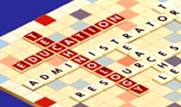
 |
| [ ASET ]
[ Proceedings Contents ] |
Internet based online or electronic publishing of scholarly journals and conference proceedings leapt into prominence during the late nineteen nineties. However, is the outcome a clear case of predominance for electronic publishing, of online "winning" in competition against print based publishing? Our presentation reviews trends in scholarly publishing in educational technology and some general areas of educational research, to address this and several related questions. Are commercial publishers "winning" over professional society based, not for profit publishers? Are large scale publishers with hundreds of journals "winning" over small scale publishers with only one or two titles? Is "winning" an appropriate term or are there other, more useful ways to compare the diversity of types of articles, selection processes, formats, media and publishers in educational technology and related academic topics?This article obtains some evidence relating to these questions from circulation data for printed copies, page access counts for web copies, data on price per article or per view for subscribers, journals changing from society based to commercially based publication, and from analyses of reference citations. We draw upon our experiences with two journals, Australian Journal of Educational Technology (AJET), and Issues In Educational Research (IIER), and with numerous conference proceedings, including ASET's EdTech series. For analysing reference citations we assigned a format (journal, proceedings, monograph, or other) and a medium of publication (paper, website with unrestricted access, website with restricted access, or other). We present some initial findings on trends in citation of references which are available online compared with references not available online, and online references free to the Internet compared with restricted access.
Although the findings are subject to many limitations, current trends suggest that commercial publishers of scholarly journals are using online delivery successfully to strengthen their overall share of the market. Nevertheless, a small number of online, not for profit journals published by professional societies, including AJET and IIER, have attained strong growth by timely adoption of Internet technologies.
| Authors: Dr Roger Atkinson, Production Editor, Australian Journal of Educational Technology, 5/202 Coode Street, Como WA 6152, Australia. Email: [rjatkinson@bigpond.com] Dr Clare McBeath, Faculty of Education, Curtin University of Technology. Email: [c.mcbeath@curtin.edu.au] Please cite as: Atkinson, R. and McBeath, C. (2002). Scholarly publishing goes online: Who is winning? In S. McNamara and E. Stacey (Eds), Untangling the Web: Establishing Learning Links. Proceedings ASET Conference 2002. Melbourne, 7-10 July. http://www.aset.org.au/confs/2002/atkinson.html |